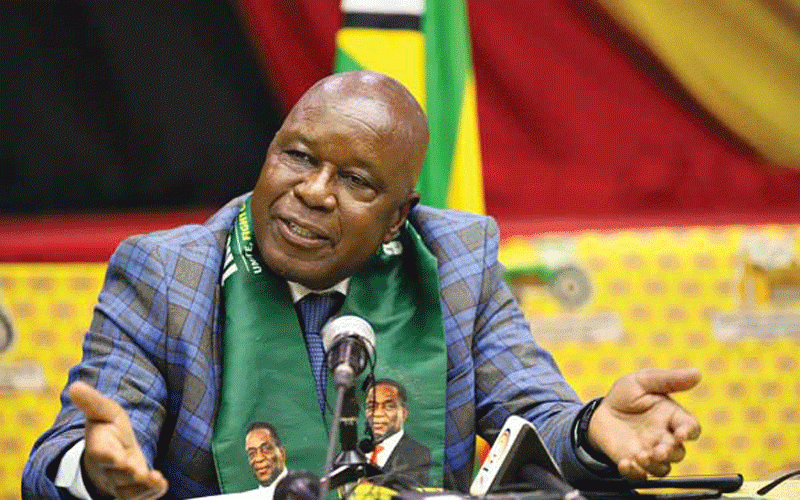
The seventh post-colonial election has now come and gone, but the outcome suggests a bumpy economic road ahead.
Report by Mutumwa Mawere
The link between targeted sanctions and regime change that was subtle will become more and more pronounced as the West tries to find justification for continued economic and political isolation of the new, but old administration.
I registered to vote on June 28 2013, but was unsure whether my name was on the voters’ roll. Indeed, on July 31, 2013, I was pleasantly surprised to find out that my name was on the roll. The process itself was smooth and uneventful.
The queue was orderly and the voting was uninterrupted by any human factor.
I left satisfied that the Zimbabwe Electoral Commission (Zec) had done a splendid job, obviously unaware about the problems inherent in the fact that the final voters’ roll was made available at the 11th hour and, therefore, this could have been designed as alleged to deny millions of the right to vote.
My understanding was that each candidate was represented by an agent at the polling station and, as such, any mischief at the station could easily be determined at source.
One would, therefore, be justified in assuming that any rigging that is alleged could not have taken place at the polling station, let alone in respect of the affairs of the actual bodies who did cast their votes.
- Chamisa under fire over US$120K donation
- Mavhunga puts DeMbare into Chibuku quarterfinals
- Pension funds bet on Cabora Bassa oilfields
- Councils defy govt fire tender directive
Keep Reading
Taking a clinical view of the event, it would be difficult if not impossible, for any observer to conclude that any rigging did take place or was possible given the manner in which the process was organised and managed.
Both Zanu PF and MDC-T were the dominant parties in the last government and the election rules were apparently agreed to by the outgoing cabinet.
If no consensus had been reached as to how the process was to be managed, there is no doubt that the elections would not have taken place.
The heads of all parties did vote and at no stage did any one of the participants complain about anything untoward happening during the process.
In fact, all protagonists were confident of their chances at securing the majority of the votes. When the results of the parliamentary elections began to trickle in, allegations began to surface that the results could have been tampered with. Evidence began to surface that in some constituencies, voters had indeed been bused from other locations to the polling stations and this was then used as evidence of vote rigging. The integrity of the voters’ roll then also became an issue as allegations were made that it was not credible, notwithstanding the fact that a voters’ roll does not vote and more importantly, the onus will always be on the voter to ensure that his or her name is correctly registered. It is a common cause that a potential voter does not belong to anyone and, therefore, it would be risky to claim such a voter. Only counted votes expose the will of the people who actually voted. Allegations that the elections were rigged are premised on a belief that the counted votes did not truly reflect the wishes of the people who voted without suggesting what the results truly mean in the absence of any evidence of fraud in the counting of the votes. After 33 years of independence, one would expect that no dispute would exist regarding the counted votes as such counting could only legally take place in a transparent and observed manner. It is always difficult to provide evidence of vote rigging. What is typically the case is that any party that is in government always has a natural advantage in terms of media coverage and funding. It was obvious that of the contesting parties, Zanu PF was well-resourced and better organised. The question of political financing and its impact on distorting choices is not unique to Zimbabwe, but a universal challenge. President Robert Mugabe is an incumbent and has been in the position for over 33 years to allow him enough time to have built some equity to act presidential when his competitors could only pretend or imagine what it means to be President. The elections were, indeed, peaceful. What is strange is that the outcome of this election, against a background of a nation that needs to include more people in the economic mainstream, does not augur well for the unemployed and poor. The West has already spoken that the outcome is not credible and, therefore, anyone who hoped that the outcome of the elections would change attitudes and open the door for capital flows has to think again. The elections were ultimately financed by robbing Peter to pay Paul. The expectation that Sadc would assist financially was not realised. In fact, the resolution of the last Sadc Troika on Zimbabwe was that the elections be delayed by a minimum of two weeks and this did not happen. Zimbabweans who voted for the restoration of Zanu PF as the majority party must have had applied their minds on what the outlook of the economy would be. The law of conquest dictates that the conqueror must be seized with the burden of managing even the affairs of the vanquished. The headache for changing the quality of life for all Zimbabweans now rests with Zanu PF and its office bearers, but no one is under any illusion that solutions lie in the programme set out in the manifesto. The crafters of the manifesto were alive to the possible reaction of the West to Zanu PF’s electoral triumph by choosing not to premise the future growth of the economy on any injection of Western aid. What remains to be seen is how the identified untapped wealth is to be unlocked for the benefit of the majority. The people of Zimbabwe who voted have removed the alleged stumbling block to enlightened policy formulation and implementation that President Mugabe has been complaining about. The burden to govern now rests with Zanu PF and its members. Although the AU and Sadc observers have endorsed the outcome of the elections, it is unlikely that the new government will get any financial support from its African brothers and sisters. The futility of challenging the outcome in Zimbabwean courts is well obvious to anyone who understands what time it is in the country. It would appear that there is very little that Sadc and AU leaders can do to change an outcome that their observers have already endorsed. To the extent that the observers were on the ground during the event, it will be hypocritical for such observers to vary their conclusions on the basis of evidence that was not revealed to them during the process of voting. The two big elephants have been in the theatre for the last 14 years and the country has been the victim. Although any rational person knows that elections are just events that are incapable in and out of themselves to change the quality of life, however, the strange spirit that if there is a winner then it must be eliminated from the Zimbabwean narrative. It must be obvious that if more than two million votes were counted in favour of Mugabe, then that number is supported by real human beings. If the allegation is that the two million votes were supported by ghost voters then surely the party agents would be the ones crying foul as they had the opportunity to detect any mischief as it occurred. The fact that Welshman Ncube and Dumiso Dabengwa have apparently accepted the outcome speaks volumes about why it is important for the country to turn a new leaf. The people in whose name governments are formed have spoken to allow anyone interested in the future to start a new conversation that will expose what works and what will never work. Indigenisation and economic empowerment programmes will never produce new incomes let alone generate jobs that cannot be generated without their implementation. A wrong idea will always be wrong from inception and it is unlikely that external partners that are required will assist in converting a bad idea into a good one.











